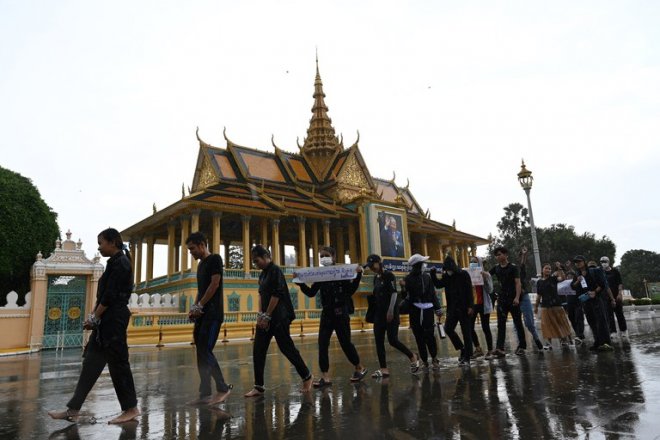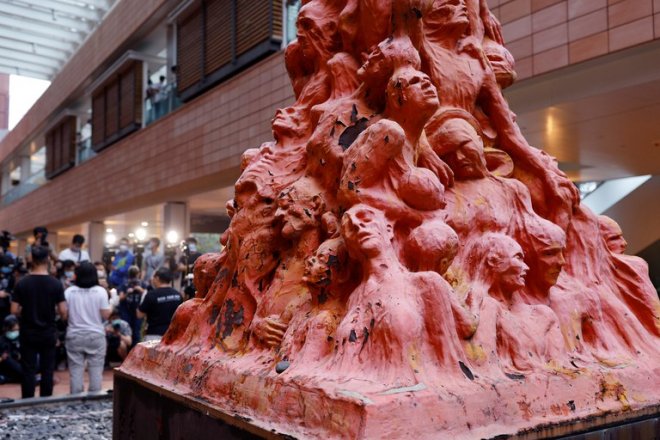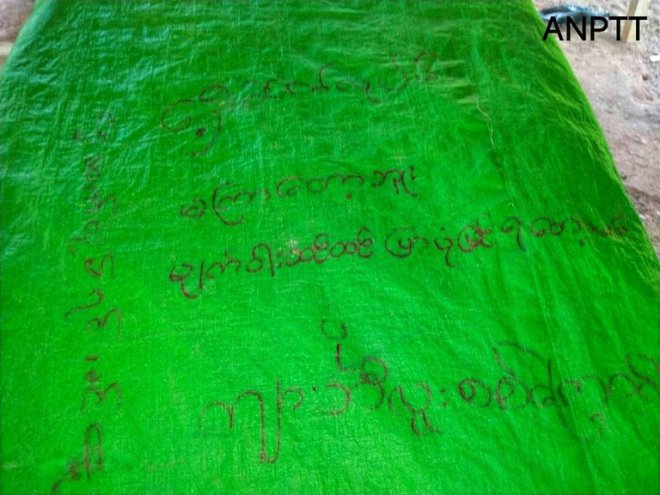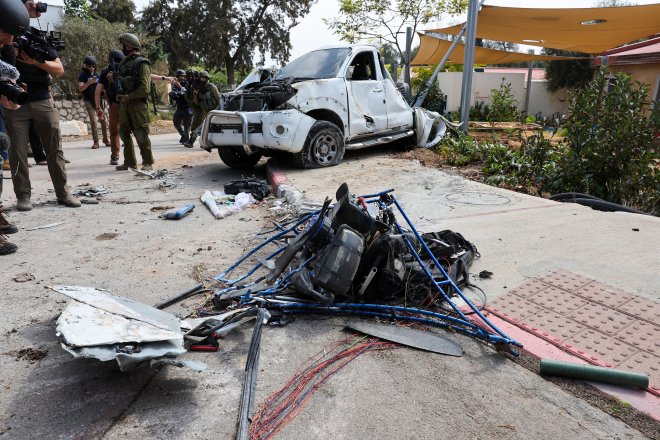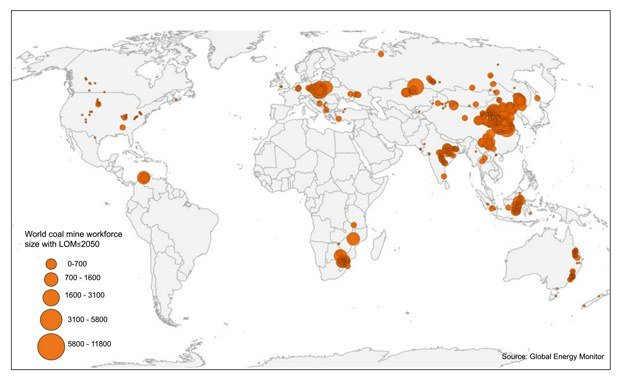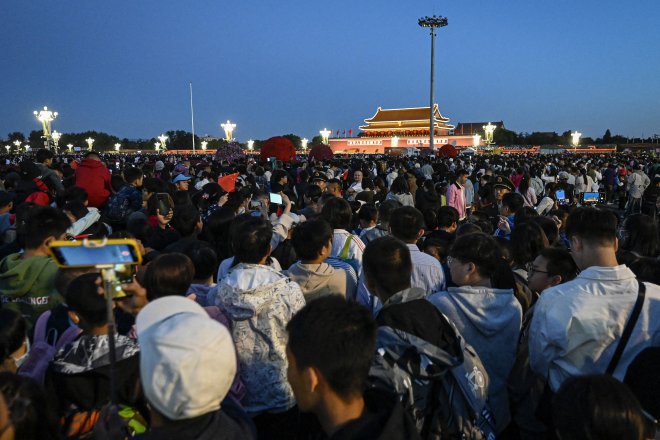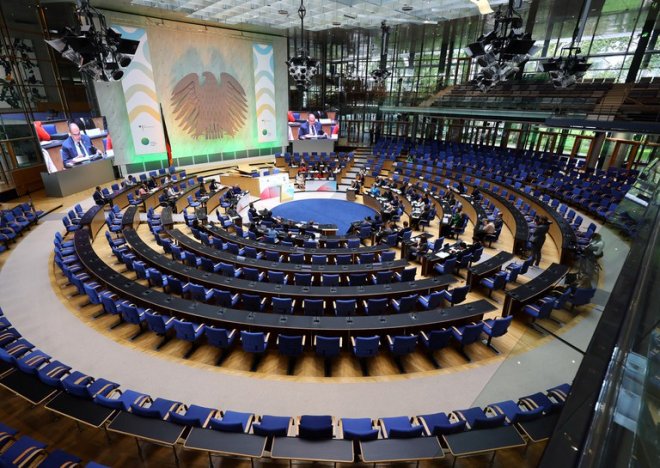Calls grow for British government to speak out against Hong Kong's media crackdown
British lawmakers and the son of jailed media magnate Jimmy Lai have criticized the United Kingdom for failing to oppose China"s crackdown on Hong Kong"s once-free media and support embattled journalists in the city.
"The British government did not really call for the release of my father," Lai"s son Sebastien told journalists as the All Party Parliamentary Group on Hong Kong published a report on the state of the city"s media amid an ongoing crackdown under a draconian security law imposed by Beijing.
"This is a man who has stood up for Hong Kong"s freedoms for the past few decades, and a publisher who has stood up for his beliefs like the rule of law, free speech, democracy, and who has gone straight to jail for it," he said.
Lai, whose Next Digital media empire and its flagship Apple Daily newspaper were forced to close amid a national security investigation in 2021, will be tried for "collusion with a foreign power" and other charges linked to "seditious publications."
The parliamentary group"s report calls on the British government to issue emergency visas to journalists at risk of arrest or prosecution in Hong Kong, and to apply targeted sanctions to individuals responsible for Lai"s arrest and arbitrary detention.
"[The government should] call upon Hong Kong authorities to restore full editorial independence and end censorship campaigns at the territory’s public broadcaster Radio Television Hong Kong and others [and] provide assistance to journalists targeted in Hong Kong, including by providing them with emergency visas," it said.
It said the British government should "treat the case of Jimmy Lai, a British citizen and political prisoner, as a political priority."
"This includes applying pressure for his release, and deeming his current arrest as arbitrary detention," the report said.
‘Kafkaesque’
It slammed "Kafkaesque" judicial arrangements under the national security law imposed by the Communist Party from July 1, 2020.
"The handling of the cases against Jimmy Lai, and the concerns raised regarding due process and the rule of law, show how the Kafkaesque process does not leave any sense that he could possibly have a fair trial in Hong Kong," the report said, blaming the national security law for "crush[ing] freedom of expression and media pluralism in Hong Kong."
British barrister Caoilfhionn Gallagher, who heads Lai"s international legal team, said she and her colleagues have been targeted by pro-China abuse online, which has included threats of rape, dismemberment and death, but that the British government has said nothing on the matter.
Hong Kong journalist Lam Yin-bong, former assignment editor at Stand News, which shut down under investigation by national security police a few months after the Apple Daily was forced to close, said he is struggling to make ends meet through his one-man news operation ReNews.
![]() British barrister Caoilfhionn Gallagher says she and her colleagues have been targeted by pro-China abuse online, which has included threats of rape, dismemberment and death. Credit: Lu Xi"It"s hard for small or independent media in Hong Kong to get in touch with foreign governments and organizations, let alone get direct funding, which could lead to charges of "collusion with foreign forces" [under the national security law]," Lam said.
British barrister Caoilfhionn Gallagher says she and her colleagues have been targeted by pro-China abuse online, which has included threats of rape, dismemberment and death. Credit: Lu Xi"It"s hard for small or independent media in Hong Kong to get in touch with foreign governments and organizations, let alone get direct funding, which could lead to charges of "collusion with foreign forces" [under the national security law]," Lam said.
"Any financial transactions between non-government organizations and anyone overseas can now be used as evidence of a crime," he said.
Retraining exiled journalists
Hong Kong journalists who fled the city amid an ongoing crackdown on public dissent and political opposition have vowed to keep campaigning for press freedom for the city from overseas, as well as retraining exiled journalists for jobs elsewhere.
Former Apple Daily reporter Shirley Leung, who has moved to the democratic island of Taiwan to set up the Hong Kong-focused Photon News, said it has been very hard for journalists to do their jobs in Hong Kong since the crackdown began in the wake of the 2019 protest movement.
"The pervasive sense of fear [in Hong Kong] makes it seem very hard to report freely, or to fully report everything interviewees are saying," Leung said. "To be honest, I was censoring myself."
"Since I left Hong Kong, I have enjoyed a lot more freedom of speech and of the press, so we are now all trying to figure out how to make this work," she said, using a Chinese saying "crossing the river by feeling the stones."
The United Nations Special Rapporteur on the independence of judges and lawyers, Margaret Satterthwaite, wrote to the Chinese government last week saying that the national security law had interfered with the rule of law in Hong Kong.
"The [law] could undermine the independence of the judiciary and remove procedural safeguards essential for a fair trial, Satterthwaite wrote in a summary of her letter on her Twitter account.
She said the law gives the executive new powers, including the power to decide which judges are eligible to hear national security cases, to authorize some trials to proceed without a jury, and to transfer certain cases to be heard in mainland China, while restricting judicial review by vesting the power to interpret the law in the Standing Committee of the National People"s Congress in Beijing.
Meanwhile, the law has also expanded police powers, allowing officers to conduct searches and surveillance without a warrant, she said.
Recent moves to disqualify Jimmy Lai"s British barrister Tim Owen from representing him at his national security trial will likely soon lead to an outright ban on foreign lawyers working on national security cases, she wrote.
"I recommend review and reconsideration of the National Security Law to ensure that the law is in compliance with China’s international human rights obligations with respect to the HKSAR,” Satterthwaite wrote.
Translated by Luisetta Mudie. Edited by Malcolm Foster.
[圖擷取自網路,如有疑問請私訊]
"The British government did not really call for the release of my father," Lai"s son Sebastien told journalists as the All Party Parliamentary Group on Hong Kong published a report on the state of the city"s media amid an ongoing crackdown under a draconian security law imposed by Beijing.
"This is a man who has stood up for Hong Kong"s freedoms for the past few decades, and a publisher who has stood up for his beliefs like the rule of law, free speech, democracy, and who has gone straight to jail for it," he said.
Lai, whose Next Digital media empire and its flagship Apple Daily newspaper were forced to close amid a national security investigation in 2021, will be tried for "collusion with a foreign power" and other charges linked to "seditious publications."
The parliamentary group"s report calls on the British government to issue emergency visas to journalists at risk of arrest or prosecution in Hong Kong, and to apply targeted sanctions to individuals responsible for Lai"s arrest and arbitrary detention.
"[The government should] call upon Hong Kong authorities to restore full editorial independence and end censorship campaigns at the territory’s public broadcaster Radio Television Hong Kong and others [and] provide assistance to journalists targeted in Hong Kong, including by providing them with emergency visas," it said.
It said the British government should "treat the case of Jimmy Lai, a British citizen and political prisoner, as a political priority."
"This includes applying pressure for his release, and deeming his current arrest as arbitrary detention," the report said.
‘Kafkaesque’
It slammed "Kafkaesque" judicial arrangements under the national security law imposed by the Communist Party from July 1, 2020.
"The handling of the cases against Jimmy Lai, and the concerns raised regarding due process and the rule of law, show how the Kafkaesque process does not leave any sense that he could possibly have a fair trial in Hong Kong," the report said, blaming the national security law for "crush[ing] freedom of expression and media pluralism in Hong Kong."
British barrister Caoilfhionn Gallagher, who heads Lai"s international legal team, said she and her colleagues have been targeted by pro-China abuse online, which has included threats of rape, dismemberment and death, but that the British government has said nothing on the matter.
Hong Kong journalist Lam Yin-bong, former assignment editor at Stand News, which shut down under investigation by national security police a few months after the Apple Daily was forced to close, said he is struggling to make ends meet through his one-man news operation ReNews.
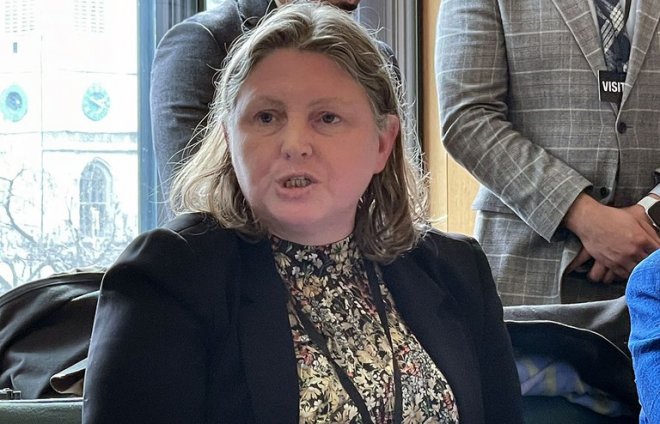 British barrister Caoilfhionn Gallagher says she and her colleagues have been targeted by pro-China abuse online, which has included threats of rape, dismemberment and death. Credit: Lu Xi"It"s hard for small or independent media in Hong Kong to get in touch with foreign governments and organizations, let alone get direct funding, which could lead to charges of "collusion with foreign forces" [under the national security law]," Lam said.
British barrister Caoilfhionn Gallagher says she and her colleagues have been targeted by pro-China abuse online, which has included threats of rape, dismemberment and death. Credit: Lu Xi"It"s hard for small or independent media in Hong Kong to get in touch with foreign governments and organizations, let alone get direct funding, which could lead to charges of "collusion with foreign forces" [under the national security law]," Lam said."Any financial transactions between non-government organizations and anyone overseas can now be used as evidence of a crime," he said.
Retraining exiled journalists
Hong Kong journalists who fled the city amid an ongoing crackdown on public dissent and political opposition have vowed to keep campaigning for press freedom for the city from overseas, as well as retraining exiled journalists for jobs elsewhere.
Former Apple Daily reporter Shirley Leung, who has moved to the democratic island of Taiwan to set up the Hong Kong-focused Photon News, said it has been very hard for journalists to do their jobs in Hong Kong since the crackdown began in the wake of the 2019 protest movement.
"The pervasive sense of fear [in Hong Kong] makes it seem very hard to report freely, or to fully report everything interviewees are saying," Leung said. "To be honest, I was censoring myself."
"Since I left Hong Kong, I have enjoyed a lot more freedom of speech and of the press, so we are now all trying to figure out how to make this work," she said, using a Chinese saying "crossing the river by feeling the stones."
The United Nations Special Rapporteur on the independence of judges and lawyers, Margaret Satterthwaite, wrote to the Chinese government last week saying that the national security law had interfered with the rule of law in Hong Kong.
"The [law] could undermine the independence of the judiciary and remove procedural safeguards essential for a fair trial, Satterthwaite wrote in a summary of her letter on her Twitter account.
She said the law gives the executive new powers, including the power to decide which judges are eligible to hear national security cases, to authorize some trials to proceed without a jury, and to transfer certain cases to be heard in mainland China, while restricting judicial review by vesting the power to interpret the law in the Standing Committee of the National People"s Congress in Beijing.
Meanwhile, the law has also expanded police powers, allowing officers to conduct searches and surveillance without a warrant, she said.
Recent moves to disqualify Jimmy Lai"s British barrister Tim Owen from representing him at his national security trial will likely soon lead to an outright ban on foreign lawyers working on national security cases, she wrote.
"I recommend review and reconsideration of the National Security Law to ensure that the law is in compliance with China’s international human rights obligations with respect to the HKSAR,” Satterthwaite wrote.
Translated by Luisetta Mudie. Edited by Malcolm Foster.
[圖擷取自網路,如有疑問請私訊]
|
本篇 |
不想錯過? 請追蹤FB專頁! |
| 喜歡這篇嗎?快分享吧! |
相關文章
AsianNewsCast








